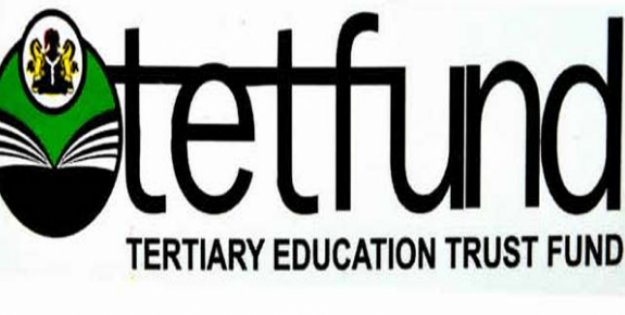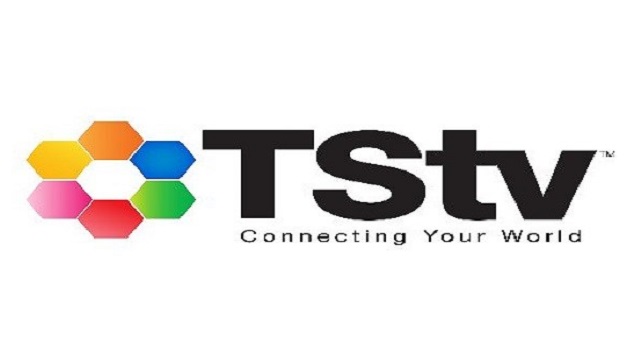Broadcasting
TETFund Joins the Science Granting Councils Initiative in Sub-Saharan Africa

The UK’s West Africa Research and Innovation Hub, has facilitated the joining of Nigeria’s Tertiary Education Trust Fund (TETFund) into the membership of the Science Granting Councils Initiative in sub-Saharan Africa

The Science Granting Councils Initiative in sub-Saharan Africa (SGCI) on Monday announced that the Nigeria Tertiary Education Trust Fund (TETFund) has joined the initiative to advance research excellence in sub-Saharan Africa.
TETFund is an agency set up by the Federal Government of Nigeria to provide supplementary support to all levels of public tertiary institutions. It’s Research and Development (R&D) support is becoming an institutional reference and has changed Nigeria’s narrative in many aspects.
Nigeria is already a major producer of research in Africa, though a recent study suggests that it has the clear potential to do more, given the number of its universities (196), think-tanks and research professionals.
Speaking on the development, Prof. Suleiman Elias Bogoro, Executive Secretary Tertiary Education Trust Fund (TETFund), said: “National growth and competitiveness (in the context of globalized economy) depends very much on continuous technological improvement and innovation driven by a well-organized vibrant Research and Development System.
“We are confident that our admission into SGCI will open a new window of opportunities that will provide platforms that can serve as a fulcrum in achieving our goals of Nigeria’s transition to a knowledge economy in the 21st century.
“We are assured of quality partnerships and collaborations on the continent of Africa and beyond.”
Starting in 2015, the Science Granting Councils Initiative has been jointly funded by the United Kingdom’s Foreign, Commonwealth and Development Office (FCDO), Canada’s International Development Research Centre (IDRC), South Africa’s National Research Foundation (NRF), the Swedish International Development Cooperation Agency (Sida) and the German Research Foundation (DFG). The initiative aims to strengthen the capacities of Science Granting Councils (SGCs) in sub-Saharan Africa in order to support research and evidence-based policies that will contribute to economic and social development.
Through this engagement with TETFund, facilitated by FCDO’s West Africa Research and Innovation Hub, Nigeria has become the 16th country in SGCI.
Initially it will join other SGCs through the SGCI Annual Forum, bilateral exchange visits and other activities to share lessons in managing research funds for maximum impact and to identify areas for future collaboration, such as joint research calls, as resources become available.
According to Dr. Dominique Charron, Vice-President, Programs and Partnership Branch at Canada’s International Development Research Centre, “with the largest population and economy in Africa, Nigeria’s participation expands the potential for the Science Granting Councils Initiative to achieve its goals of strengthening science systems and building alliances between science granting councils in multiple regions across the sub-continent and internationally.”
Executive Director, Strategic Partnerships at National Research Foundation-South Africa and SGCI Executive Committee Member, Dr Aldo Stroebel, added: “I am thrilled that Tertiary Education Trust Fund (TETFund) of Nigeria is joining the Science Granting Councils Initiative (SGCI).
“This collaboration will allow us to work closely with the TETFund in advancing the Science, Technology and Innovation agenda in Africa.”
Speaking on FCDO’s involvement and the benefit to Nigeria, the British High Commissioner to Nigeria, Ms Catriona Laing CB said: “Nigeria’s TETFund admission to the Science Granting Councils Initiative is a positive development that will better position Nigeria to maximise the commissioning and use of research for development, in line with critical national social and economic priorities.
“The UK champions the use of science to address global challenges, we are pleased to have supported the TETFUND to join the SGCI and will continue to work in partnership with them and other ministries, departments and agencies in Nigeria to better realise the benefits of science and research.”
Broadcasting
EFCC Re-Arraigns Echefu, TStv CEO for Allegedly Defrauding Ex-Minister of N1Bn, $1.3m

Bright Echefu, chief executive officer, Telecom Satellites Limited (TStv), and three co‑defendants appeared before the Federal High Court in Abuja yesterday on an amended twelve‑count indictment brought by the Economic and Financial Crimes Commission (EFCC). The charges allege money laundering, tax evasion, and investment fraud involving approximately ₦1 billion and $1.3 million.

Bright Echefu, chief executive officer, TStv
In addition to Echefu, the defendants are TStv Executive Director, Felix Igboanuga, Telecom Satellites Limited itself, and Briechberg Investment Ltd.
According to the April 5, 2025, amended charge sheet the EFCC accuses the quartet of defrauding Mr. Tanimu Turaki, Managing Director of Kalsiyam Global and former Minister of Special Duties, alongside BYI General Limited, out of a combined investment of ₦1 billion and $1.3 million. The commission has also included a ₦66 million alleged tax default.
The revised indictment lists:
Count 2: ₦33,909,542.47 in unremitted Company Income Tax
Count 3: ₦13,519,382.00 in unremitted VAT
Count 4: ₦19,488,860.00 in unremitted PAYE
Counts 5–12: Various fraud‑related transactions, including ₦380 million from Kalsiyam Farm, ₦400 million from BYI General Ltd and $1.35 million in loans secured under false pretences.
All defendants pleaded not guilty once again. At the hearing before Justice Mohammed Umar, Echefu’s lead counsel, Senior Advocate Eyitayo Fatogun, informed the court of ongoing settlement discussions with the complainants.
“There are moves to settle this matter and there was a meeting on Saturday between myself and the Nominal Complainant as it is about investment,” Fatogun stated.
“The Defendants have paid some money and I was thinking that the matter be adjourned for report of settlement.”
EFCC counsel A.S. Tomwell confirmed receipt of those payments but emphasized the necessity of entering a plea before considering any adjournment. The court thus ordered the formal reading of the charges and adjourned the trial to October 15, 2025.
Broadcasting
More Woes for MultiChoice as Ghana Orders 30% Price Cut

The government of Ghana has ordered MultiChoice Ghana to reduce DSTV subscription costs by 30%, noting the significant appreciation of local currency and growing dissatisfaction with current rates.

This comes as Nigeria Data Protection Commission (NDPC) has fined MultiChoice Nigeria ₦766,242,500 for breaching the Nigeria Data Protection Act (NDPA).
According to Mr Babatunde Bamigboye, head Legal, Enforcement & Regulations, NDPC, the investigation, which commenced in the second quarter of 2024, was triggered by suspected breach of privacy rights of Multichoice subscribers and illegal cross-border transfer of personal data of Nigerians.
MultiChoice, which operates across Africa, continues to lose revenue and subscribers.
Ghana’s minister of communication, digital technology, and innovation, Samuel Nartey George, made the call last week during a meeting with a DSTV team led by Dr. Keabetswe Modimoeng, group executive for regulatory and corporate affairs.
According to a ministry statement, George said the government’s responsibility is to respond to Ghanaians’ concerns over high DSTV pricing and outdated content offers.
The Minister pointed out that despite a 30% increase in the cedi’s value over the past five months; DSTV prices have not reflected the positive economic trend.
The statement went on to say the minister is therefore calling for a 30% price reduction to match the cedi’s appreciation and to pass on economic benefits to consumers.
According to the statement, while MultiChoice has implemented promotional packages, people prefer a direct price reduction over temporary discounts.
George said feedback from public engagements revealed that many users are dissatisfied with DSTV’s content, describing it as outdated save for Premier League football. They also believe that the current cost is not justified.
”To address the concerns, he said MultiChoice Ghana has until July 21 to formally respond to the government’s request. The Minister expects a concrete proposal by this date, allowing time for further engagement before the end of July,” the statement said.
In response, Dr. Modimoeng acknowledged the government’s concerns and expressed gratitude for the opportunity to dialogue.
The MultiChoice team reacted positively to the minister’s request and committed to provide input by July 21st. They emphasised the need of balancing public interest and business sustainability.
This is the continent’s latest pricing conundrum for the pan-African pay-TV business, following fee disputes with Nigerian and Malawian authorities.
In Ghana, the demand for price cuts comes as MultiChoice is under pressure, having lost revenue and subscribers in the financial year that ended March 31, 2025. Last month, the company announced its financial year-end results.
In a statement to shareholders last month on the Stock Exchange News Service, the company said the past two financial years have been a period of significant financial disruption for economies, corporates and consumers across Sub-Saharan Africa due to challenging macro-economic factors.
Combined with the impact of structural industry changes in video entertainment, such as the rise of piracy, streaming services and social media, this has materially affected the overall performance of the MultiChoice Group, it noted.
Over this period, MultiChoice said the group lost 2.8 million active linear subscribers and had to absorb a R10.2 billion negative impact on its top line due to local currency depreciation against the US dollar.
For the year, the company reveals that linear subscribers were down 1.2 million, or 8% year-on-year, to 14.5 million active subscribers, with the loss evenly split between South African (600 000) and rest of Africa (600 000).
Broadcasting
NDPC Slaps Multichoice with ₦766M Fine for Data Privacy Violations

Nigeria Data Protection Commission (NDPC) has fined MultiChoice Nigeria ₦766,242,500 for breaching the Nigeria Data Protection Act (NDPA).

NDPC is a public institution that processes data in furtherance of its mandate as Nigeria’s data protection authority and relies on recognised lawful bases for data processing, such as consent, legal obligation, and contract.
The fine was contained in a statement signed by Mr Babatunde Bamigboye, head Legal, Enforcement & Regulations, NDPC.
According to him, the investigation, which commenced in the second quarter of 2024, was triggered by suspected breach of privacy rights of Multichoice subscribers and illegal cross-border transfer of personal data of Nigerians.
“The NDPC found, among others, that Multichoice violated the data privacy rights of subscribers and their friends who are not necessarily subscribers.
The Commission also found that Multichoice carries out illegal cross-border transfer of personal data relating to data subjects in Nigeria.
The depth of data processing by Multichoice is patently intrusive, unfair, unnecessary, and disproportionate.
This is a grave affront to fundamental right to privacy as enshrined in Section 37 of the 1999 Constitution of the Federal Republic of Nigeria.
In line with its standard remediation procedure, the Commission directed Multichoice to carry out appropriate remedial measures.
However, the Commission found the measures undertaken by Multichoice in this regard unsatisfactory.
For want of cooperation, the Commission has directed Multichoice to pay ₦766,242,500 for violating the Nigerian Data Protection Act.
“Nigeria is entitled to protect her citizens and data sovereignty under both international and extant municipal laws, as these have far-reaching implication for rule of law, national security, and economic growth.” the statement said.
Babatunde also revealed that, Vincent Olatunji, national Commissioner, NDPC, has directed that all outlets through which Multichoice is collecting personal data of Nigerian citizens should be investigated for non-compliance.
He added that any outlet that processes personal data in violation of the NDP Act is liable to penalty under the Act.

 News3 days ago
News3 days agoJAMB Accuses Student of Securing Admission through Identity Fraud

 News3 days ago
News3 days agoCheck Point Report Finds Africa as Top Target for Cyber-attacks

 E-Financial3 days ago
E-Financial3 days agoEFCC Recovers Funds Lost to CBEX Fraud

 Telecom2 days ago
Telecom2 days agoNCC Speaks of Plans to Secure Telecom Infrastructure Nationwide

 General News2 days ago
General News2 days agoAirtel Nigeria Drives BFSI and Utility Sector Innovation with Industry-wide Workshop

 E-Financial3 days ago
E-Financial3 days agoFinancial Fraud in Nigeria Surges by 45 Percent, 70 Percent of Losses Linked to Digital Platforms – CBN

 Telecom2 days ago
Telecom2 days agoAfrica’s Lawmakers Commit to Strengthening AI, Digital Health and Smart Manufacturing Frameworks

 E-Financial2 days ago
E-Financial2 days agoUBA Expands to More African Cities, Stamps Footprint in Saudi Arabia
























